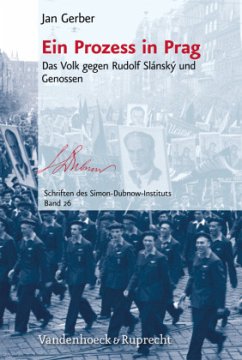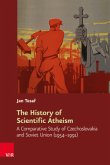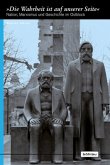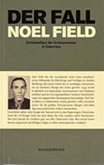In November 1952, Rudolf Slánský and thirteen other Czechoslovak high-ranking officials of the Communist party and the government were accused of conspiracy against the People's Republic in the most notorious and last ever Stalinist show trial, taking place in Prague. Eleven of them were executed, three sentenced to life imprisonment. The Slánský Trial differed from other Stalinist show trials in the number of death penalties handed down and its openly anti-Semitic tendencies. Eleven of the accused were of Jewish origin. Resorting to the biographies of two writers who grew up in Bohemia, Louis Fürnberg, author of the song "The Party is Always Right," and F. C. Weiskopf, Jan Gerber explores why, only seven years after the liberation of Auschwitz, anti-fascists carried out a trial in which Jews were indicted for being Jews. He examines further why, of all places, this trial took place in communist Czechoslovakia, a country that had been considered an island of democracy and tolerance during the interwar period. The biographies of Fürnberg and Weiskopf, who in the early 1950s were impacted by the general political atmosphere created by the Slánský Trial, and, fearing persecution, ultimately left Czechoslovakia for the GDR, show that the Slánský Trial did not solely derive from the initiative of Moscow. At the same time, the conflicts over nationality of the interwar period continued in the trial ideologically encoded.
Hinweis: Dieser Artikel kann nur an eine deutsche Lieferadresse ausgeliefert werden.
Hinweis: Dieser Artikel kann nur an eine deutsche Lieferadresse ausgeliefert werden.








